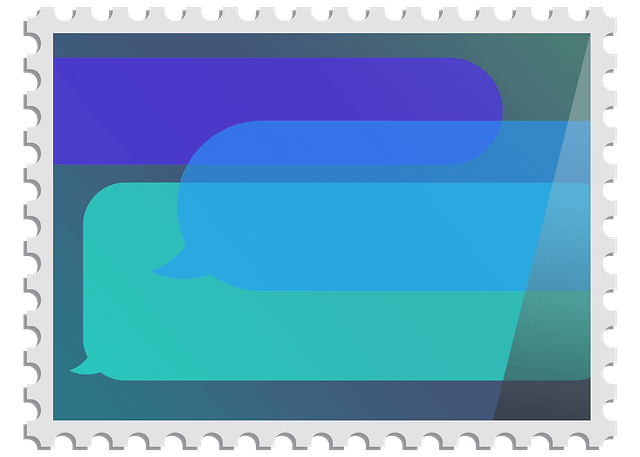
Recently, on a train, I fell into conversation with a woman who’d been spending the year cataloging the papers of her dead husband, a philosopher and Marxist scholar. She pored over the draft of his never-published novel. She sifted through half-realized collaborations with other academics, seeking clues of her husband’s preoccupations at various points in time. But where she ended up feeling some disappointment was in reading his letters. She noticed how much he had edited his personal correspondence, seemingly cognizant that someone would one day read them, stripping away evidence of raw emotion or misdeed. They gleamed with a kind of self-conscious purity and felt, to the widow, like an optical illusion. “After he died,” she told me, “I lost faith in letters.”
I got stuck on that phrase “faith in letters” and the reminder that the form can inspire both devotion and distrust. It’s true that we tend to expect a person’s correspondence to reveal some uniquely private version of them, a freeze-frame of their gestures, sense of humor, reflexive retorts. The pet names Virginia Woolf used when writing to her sister. George Bernard Shaw’s quips. George Eliot’s punctiliousness: “My dear friend, I pursue the same plan with my letter as I used when a little child with my pudding,” she wrote to a friend at age nineteen. “That of dispatching the part for which I had the least relish first.”
There’s so much to glean from a letter’s style. The ebullience of a run-on sentence and the mischief of an exclamation point. I remember once reading through the notes that my great uncle sent home from Europe when he had gone off to fight in World War II. He was killed in the Battle of the Bulge, three days before his nineteenth birthday. He wrote in a voice streaked with boyish optimism, describing “riotous” nights with friends and teasing his sister, whom he called “dollink” for darling. Each note is scrawled out breathlessly. The sentences are disjointed, the thoughts disconnected. In other words, he’s very much a teenager thousands of miles from home, torn between being homesick, goofy, optimistic, and also afraid.
If there’s a modern equivalent in tone and intimacy — if not depth or style — we would have to look online. There are texts, tweets, emails, Instagram DMs. Some of these might inspire even more faith than their analogue predecessors. After all, most of us are dashing off messages at a volume that makes self-conscious gloss practically impossible to pull off.
Consider the group chat: A million loosely assembled constellations of people who were on some trip together and decided to formalize a space for periodic personal updates. Then people react. They give a heart, or exclamation point, or a thumbs down — the digital equivalent of a nod or a headshake. Normal questions get five question marks: What should we have for dinner tonight????? Periods disappear, replaced by endless back-and-forth where thoughts land on top of one another in the comfort but also disquiet of low-stakes conversation headed more toward an “lol” than epiphany. I did an unscientific study recently in which I asked friends what words they type out most every day. “Lol.” “Hahahaha.” “Lmao.” Also “vibes.” Maybe there’s a kind of honesty that’s guaranteed just by the amount of words we’re generating — all these thoughts only partly considered before they pop up on a friend’s phone. The laws of language that we learned in school have disappeared: capital versus lower case, subject versus object, present perfect and simple past. We spend our days putting out messages that don’t abide by any code. All that matters is that the recipient can sort of understand what we’re talking about. Sometimes they don’t, and that’s fine too.
That informality has trespassed into book territory, especially in the case of those novelists missing quotation marks: Sally Rooney, Ali Smith, sometimes Rachel Cusk. Some of their characters — already vaporous, composed mainly of their hip bones and wispy skirts — don’t differentiate between what they think and what they say. The distinction is usually obvious from context but occasionally up to the reader’s interpretation. That classic act of self-making, wrestling with what gets thought and what gets spoken aloud, has seemingly gone the way of the plot. It’s possible to imagine statements that the characters make as flirtations or reflections, but also as sideline admissions to the reader. Take away the punctuation and the page becomes a funhouse mirror, reflecting the contours of a protagonist in ten different ways depending on where you stand. Of course, twenty-first-century writers aren’t the first to flout the rules of punctuation, but the no-quotation-marks-style at least feels increasingly popular, to the extent that to mention it now will reliably trigger an eye roll.
It really does feel like the boundaries between thought, speech, and writing are more porous these days. We text like we talk; we tweet like we think; we email without the flourishes that mark more thoughtful, premeditated communication. That means we also start to sound more alike. A pattern of speech we hear from a stranger on TikTok gets transposed into an Instagram caption, makes its way into a joke at the dinner table and then circles back into someone else’s tweet. Language is more global than ever, rapidly morphing, shaken loose from the confines of our immediate circles.
In the early days of the pandemic, a linguist at Michigan State University named Betsy Sneller started tracking the way speech patterns in Michigan were changing. To date her team has collected more than 3,200 spoken diary entries from residents between the ages of 5 and 72. The events that the participants describe are disparate, often banal and sometimes calamitous. A little girl talks about being buried by her sister in the snow. An older woman reaches her second trimester of pregnancy. A teenager recounts locking down during a school shooting. What the researchers noticed, though, was that across all the entries there was a strange similitude to the emotional valence. People of all different ages and cities tended to be sad during the same periods, and happy during others. The linguists posited that some of this continuity came from digital communication. There are surely other explanations too. But it’s intriguing to imagine that, by spending so much time online, sharing our thoughts and feelings, we warp language via emotional contagion. The volume of words we put out means that our moods can more easily spread.
One could ask whether we’re writing for anyone but ourselves with this endless blob of words. Who would ever take an interest in all our random “hahahahas”? Are we even that interested in our own? On the other hand, digital messages regularly become the object of public fascination. A flood of emails leaks with telling results, or at least funny ones. “Gefilte fish,” was the subject of one note from Hillary Clinton to Jake Sullivan, a national security advisor, and Richard Verma, a State Department official. “Where are we on this?” was all that the message contained.
I like to imagine somebody’s grandkids sorting through zip files of their texts and emails someday. Not the varnished goodness of their letters, but the insanity of their stream of consciousness: debriefing a night out, dissecting a crush, deconstructing a recipe, deconstructing a meme. The apologies for slights real and imagined. The back-and-forths about love and soup dumplings. The effusiveness: ILY ILY ILY. There’s infectious silliness, the effervescence of a rapid-fire nonsensical exchange.
Digital communications, like the husband’s letters, can spark their own breed of dubiousness. There’s an element of performance, the hunger for instant validation that’s accentuated as the forums get more public, from DM to group text to Twitter profile. But I like to think that reality, unpolished, will always start to seep through the cracks. It can feel like we’re all characters in a novel that’s done away with quotation marks, our thoughts undifferentiated from speech. The boundaries of humor and gravity and earnestness are open to others’ interpretation. But at least some of it is genuine. There’s a faith in letters that slowly gets restored.


